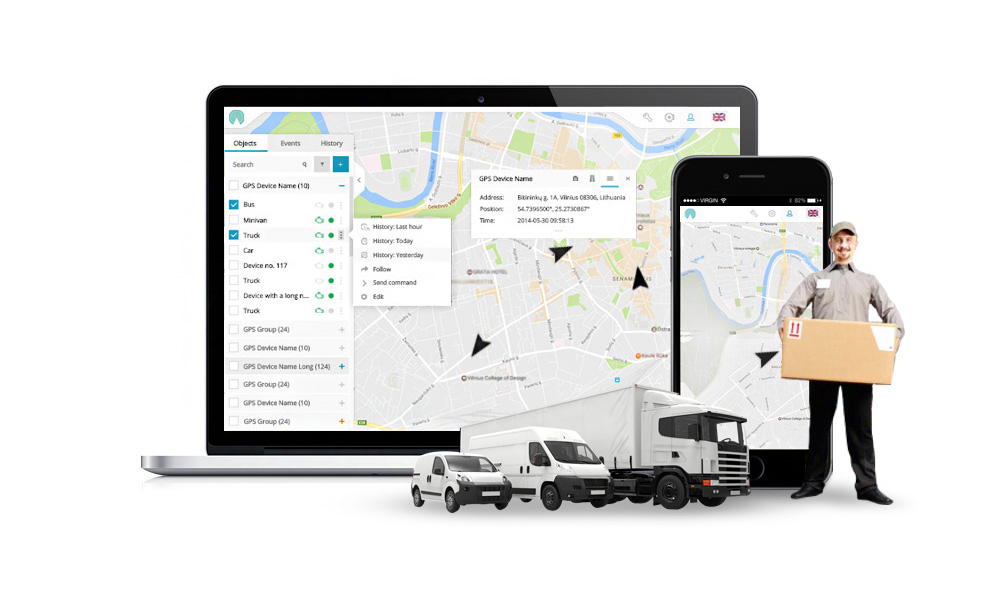If you’re in the food industry, having operations across different geographies, transporting and moving food items from one warehouse to another is challenging. Not just food materials but also medicines and chemicals manufacturers have to ensure the right temperature. Maintaining the temperature of goods during logistics operations is crucial to guaranteeing temperature-sensitive products’ quality, safety, and efficacy.
While the products are stored in temperature-monitored warehouses, ensuring the right temperature during transportation becomes a huge responsibility of fleet managers. Further, products sensitive to temperature, like food and produce, livestock transportation, pharmaceuticals, biological materials, and chemicals, all require different compliance regulations.
If goods are not delivered in a suitable condition, it is a loss for everybody! For example, vaccine transportation was a huge challenge during the Covid-19 pandemic, especially when the demand was high globally. But if vaccines are not maintained at the right temperature, it’s of no issue and, if consumed, can put lives at risk.
Fluctuations in temperature during transport can occur due to various factors, such as weather conditions, mechanical failures, and delays in transit. It is essential to have proper temperature control equipment and procedures in place to monitor and maintain the temperature range during transport.
But how to achieve this? With a GPS tracking device, fleet managers can maintain the right temperature during transit and keep goods in proper condition.
Temperature Monitoring GPS Tracker
A GPS tracker for temperature monitoring combines functions of GPS technology and a temperature sensor (IoT sensor) to monitor the location and temperature of goods during transportation. This device can be attached to a container, truck, or any other vehicle for transporting temperature-sensitive products.
The GPS tracker uses satellite technology to track the location of the container or vehicle in real-time, while the temperature sensor monitors the temperature inside the container or vehicle. The device can transmit this data to a centralised fleet management system that can be monitored by the fleet manager or other authorised personnel.
Real-time Temperature Monitoring
A GPS tracker can monitor the temperature of goods in transit and send temperature data from the GPS tracker in real-time to fleet managers. This ensures that the temperature of the goods remains within a specified range. If the temperature fluctuates, it sends alerts to fleet admins, preventing product spoilage, degradation, or loss.
Real-time temperature monitoring can provide greater visibility into the supply chain, allowing fleet managers to optimise logistics operations, reduce transit times, and ensure timely delivery of goods.
Optimised Routes
The longer the transit times, the more goods are at risk. Time is of the essence when transporting perishable products, and it is essential to minimise the time products spend in transit to avoid spoilage and ensure that they arrive fresh and in good condition. With the help of a GPS tracking system, fleet managers can set optimised routes, avoiding traffic and roadblocks and preventing products from spending much time on the road.
GPS trackers also gather data about weather conditions and risky routes to plan the best route, if not the shortest. This also helps reduce drivers’ travel time and fuel costs.
Vehicle Maintenance
Trucks or cargo carrying perishable products cannot afford to have a breakdown as it can lead to spoilage of products. Fleet managers can use GPS trackers to ensure that all vehicles are in proper condition for the trip. The tracker collects information about vehicle use and performance, engine health, fuel consumption, etc., and notifies fleet admins when the next maintenance is due.
Vehicle health issues can be detected with predictive maintenance before they become more costly and risky. Additionally, it surpasses conventional, end-moment maintenance, and companies can save on expensive repairs. Well-maintained vehicles perform well on the road and avoid breakdowns, protecting perishable goods.
Comprehensive Reporting
Besides vehicle data, GPS temperature monitoring systems provide data on driving behaviour like speeding, hard braking, cornering, etc., and notify fleet managers in real-time. This can mitigate accidents and loss or spillage of products. Further, temperature sensors send alerts if vehicle doors are not closed properly, or temperature fluctuates.
Reports contain other information like vehicle idling, fuel consumption, penalties, etc. For example, admins can determine if a vehicle consumes more fuel than usual, signalling a maintenance problem or obsolescence. Through one comprehensive dashboard, admins can get a view of their entire supply chain and respond immediately during emergencies.
Wrapping Up
Overall, transporting food and perishable products requires careful planning and execution to ensure that products reach their destination safely and in good condition. Here, GPS trackers can help significantly reduce fleet managers’ workload, fostering them to focus on growth opportunities. By using GPS tracking and temperature monitoring, businesses can ensure the delivery of high-quality products that meet customer expectations, improving customer satisfaction and loyalty.





